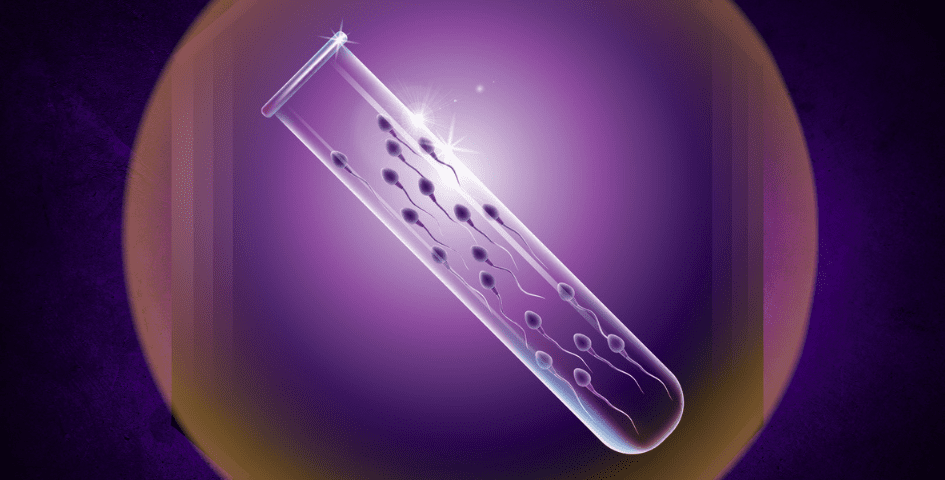Even though the male partner can contribute for about 40% to problems in couples trying to conceive a child, the semen analysis is the first and sometimes one of the only tests performed to evaluate the male. However, the physician may recommend a complete urologic examination after reviewing results of the analysis.
What is semen?
The sperm is the male “gamete” and is produced in the testis of the male. After production and maturation in the testis, it travels through the male reproductive system collecting secretions and nutrients from glands. These secretions are collectively called seminal plasma and together with sperm is referred to as semen. Sperm is produced in millions because when it is ejaculated into the female after intercourse it has to travel through the obstacle course in the female reproductive system in a race to reach the egg. Only a few make it the destination. Only one fertilizes the egg.
The sperm cannot be seen with the naked eye and has three distinct parts:
- the head which contains the genetic material,
- the neck which has important proteins which help in making of the embryo,
- and the tail which helps it to swim and reach the egg.
The plasma has substances like fructose which give it energy and other proteins to help it remain alive in the female reproductive system (sometimes for nearly 48 hours) till it reaches the egg.
What information does a semen analysis give?
The semen analysis gives the physician information about the number (count) of normal (morphology) sperm which are alive (motility) and which are available for fertilizing the egg. This is referred to as the total Motile count (TMC)
The count: number of sperm per ml of sperm (normal is ≥15 million/ml)
Motility: Percentage of sperm that are moving (normal ≥50%)
Morphology: Percentage of sperm that have the regular size of head neck and tail (normal ≥ 14%)
Total Motile Count (TMC): >20 million
The rest of the semen characteristics like abstinence, volume, pH, liquefaction, color, viscosity are all informative of the health of the male reproductive system.
Fructose Test
In the event of finding sperm absent in the semen sample, the fructose test is done as a part of the semen analysis to detect the presence of fructose in the semen. A positive test indicates the glands in the male are working fine and that the reason for absence of sperm has to be investigated. The physician will refer the patient to a urologist.
What is Kruger Strict Morphology?
This is a specialized test which is offered by labs and is performed by trained technicians due to the subjectivity of the test. Sperm is analyzed under high powered microscopes a very strict criteria is followed for identifying normal sperm. A normal semen sample has a little over >4% fitting the strict criteria of a normal sperm. A man with less than normal result is suspected to be at a risk of poor fertilization. Although this test has been proclaimed to be able to predict the fertilizing capability of the sperm it is not 100%.
Semen characteristics can be quite erratic (Sperm count and Motility can also vary with seasons!). It is important to at least have one repeat analysis preferably 4 weeks apart to account for the normal biology of sperm production and maturation.
How is a semen analysis sample collected?
Collection at the laboratory facility is often preferable. This is because the time to analysis and the holding temperature can be adequately controlled by the lab. The non-toxic collection vessel, and the use of lubricants for collection is discouraged since they might interfere with the sperm motility.
Detailed instructions are provided to the patient prior to the scheduled analysis. It is important that the semen sample is collected as per protocol for an accurate analysis.
The semen analysis should be performed by a state and/or Clinical Laboratory Improvement Amendments (CLIA) certified andrology laboratory that participates in proficiency testing like GENESIS.
Click to learn more about male infertility.
If you would like to learn more about GENESIS Fertility New York or are ready to schedule an appointment, please speak with one of our representatives at 929-605-5467.

